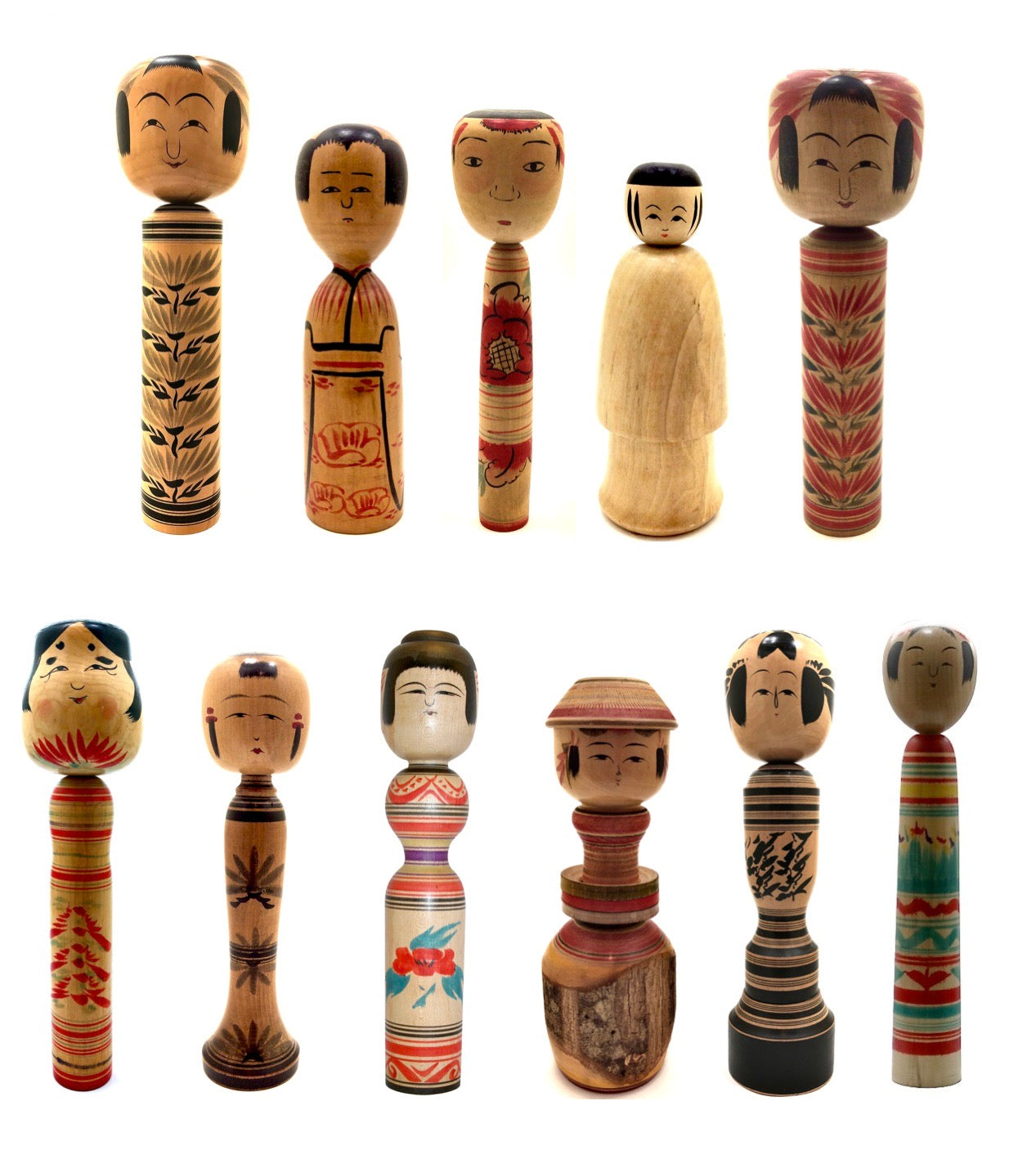
Vintage Traditional Kokeshi Dolls
Overview
The Traditiona kokeshi were created as early as the late 1960s to the 1800s, by the members of the origianl eleven families who were carpenters, (kijiya), for which the original doll was referred to as Kikuriboko, or “Child of Wood”. Since the popularity of Kokeshi spread all ovder Japan after originating in the Tohoku region, certain styles can be traced back to the onsen, (Hot Spring), in the mountains where they origianlly were created and sold. Potential buyers can go to the Browse and Learn section entitled: Search by Family to learn more about the original eleven families.
We do not have any listings for this collection
